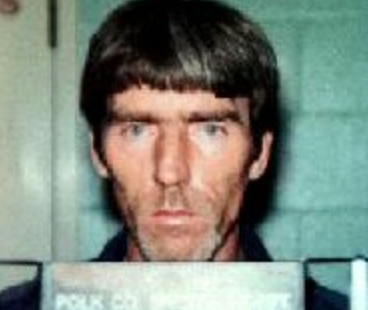Louisiana judge orders state crime lab to test evidence in serial killer’s appeal case
Daniel Blank, known as the River Parishes serial killer, claims his 1997 confession was coerced

A Louisiana judge has condemned law enforcement’s attempt to force a convicted serial killer to waive his rights to sue the state before potentially exonerating evidence is processed by the agency’s crime lab.
Daniel Blank, known as the River Parishes serial killer, is on death row for the April 1997 stabbing murder of 71-year-old Lillian Phillipe in the city of Gonzales. Following his arrest in November 1997, Blank confessed to killing Phillipe and five other victims.
But the convicted killer has since claimed that he is innocent and that his confession was coerced. His attorneys argued before the court that Blank confessed to those murders without an attorney present in the room and only after a 12-hour interrogation following several instances in which he denied any connection to the killings.
Earlier this year, Blank’s defence requested that 29 untested prints left at the Phillipe crime scene be processed by the crime lab.
Shortly after that request, the Louisiana State Police Crime Lab stated in court filings that it would only process that evidence if Blank waived his right to sue the state for civil damages in the event of being exonerated, The Advocate reports.
Although Blank had already agreed to those conditions, claiming that he only intended “to reveal the truth about his innocence,” a judge slammed the crime lab’s requirement.
“Absent any response or objection, it is incomprehensible that the State would flout this Court’s November 30 Order,” US District Judge Brian Jackson wrote in a filing last week.
Judge Jackson ordered Blank to maintain his rights to sue the state and gave the crime lab ten days to process the order issued last month.
Blank had previously noted that he wasn’t interested in pursuing a civil case, but his attorneys had argued that the request by the Louisiana State Crime Lab was improper.
The issue had been initially settled in 2021, but the expert hired by the defence to process the fingerprints died. The parties later arranged for the crime lab to conduct the testing while another expert vetted by the defence was present.
Judge Jackson also ordered that other items found at the crime scenes, including a baseball bat, fingernail scrapings and cigarette butts, are further tested. It reportedly has been determined that the DNA on those items does not belong to Blank.
The defence said that the case relied solely on Blank’s confession and is now asking for more time to determine whether that DNA evidence can be tied to another suspect.
“The only evidence connecting Mr Blank to all of the crimes was his confession such that a successful challenge to one case undermines the validity of all of the cases,” Blank’s attorney Letty Di Giulio said, per The Advocate.
A spokesman for the state police told the outlet that his agency will now review last week’s ruling with its legal staff.
Blank has been on death row since 2001. He also faces several life sentences over the murders he confessed to in 1997.
His legal team appealed the case but his conviction was upheld.
The Louisiana Supreme Court eventually stayed his execution just a month before it was set to take place in 2016.
